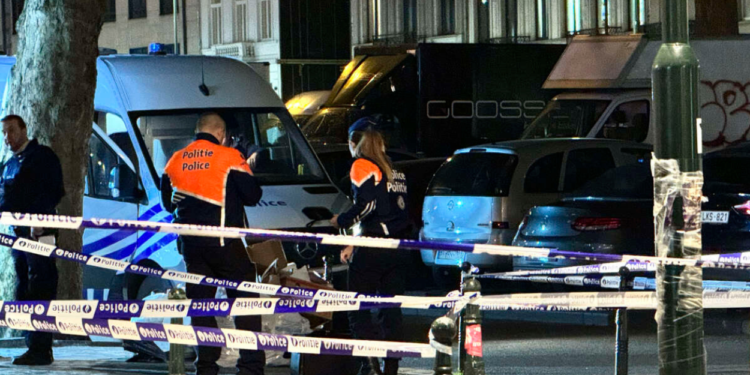Brussels implements tactics to target drug trafficking hotspots but faces scepticism amid ongoing violence and concerns over community impact.
A new police tactic of determining drug trafficking hotspots in Brussels for police focus deployment was provided with an early collision after another shooting rocked the south side of the city this week. Last Monday, Brussels management announced yet another strategy to prevent rising drug trafficking violence, most especially identifying key “hotspots” across the Belgian capital which police will prioritise as critical deployment areas.
These hotspots were recognised as being places overflowing with drug trafficking and are being fought over by rival crews. The Midi police zone will contain five or six, Jurgen De Landsheer, Chief of Police for the Midi zone, described to Media this week after the actions were announced. These will be at Peterbos, Porte de Hal, Brussels-Midi station and Place de Bethléem – but the police chief did not pinpoint the others.
One of the flagship efforts is that anyone found in these locations can be subjected to police ID inspections at any time. Shopkeepers will also be banned from selling drug-related products, and an alcohol sale prohibition has been brought in between 22:00 and 06:00. While the Midi area is better comprehended for drug use, alcohol abuse has also been quoted as a nuisance by opposing Brussels neighbourhood committees.
Saint-Gilles’ Jean Spinette is one of the concerned Brussels mayors who have been given powers to contain the problem. Since Thursday, mayors can administer several police orders over the next three months – such as temporarily down public spaces, banning people from meeting in the street and instructing the closure of certain establishments implicated in drug trafficking.
Organisations operating on the ground do not believe these steps will be effective. “We’re appalled,” Christophe Collin told La Dernière Heure. Collin is the Director of Dune, a non-profit association working in Porte de Hal with narcotic users. “This plan is going to have an impact on vulnerable groups, not on the wealthy who have drugs delivered to their homes and who are the main source of drug trafficking.”
Collin also considers that the confiscation of drug paraphernalia by the management could lead to obsession sufferers reusing other people’s syringes, increasing the chance of contracting AIDS or hepatitis. Brussels-Midi has its safe drug consumption room to bypass these problems, while also serving as a social centre to promote safer practices and can interfere in case of an overdose.
Expanding police ID checks in hotspot areas will also intensify the risk of tension in these communities, Collin stresses. “The measures will form a kind of ‘racial profiling’, with whole communities pushed into zones of deprivation, where there is no social support.”
Last Tuesday, yet another shooting happened a few streets down from the Parc de Forest, where one guy was shot in the leg and two others were wounded as “collateral”. Three people were brought to hospital with bullet injuries, one in critical condition.
“This won’t be the last incident of shooting,” stated Pierre Hollander, spokesperson of a neighbourhood committee. “We are having one or two per week.” The Mayor of Forest Mariam El Hamidine, who was at the scene shortly after the shooting this week, revealed to Media that she felt “very angry” about the happening.




